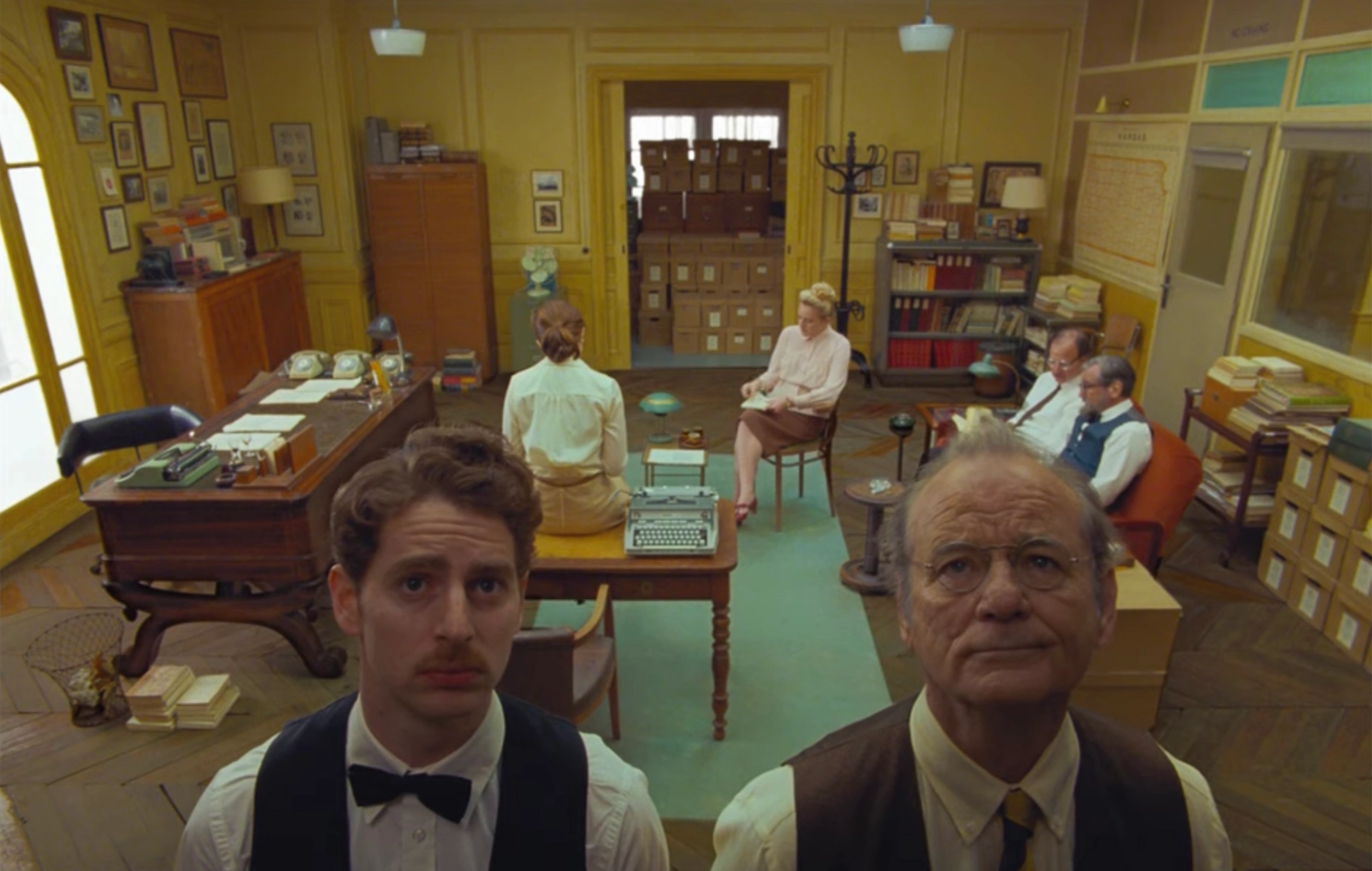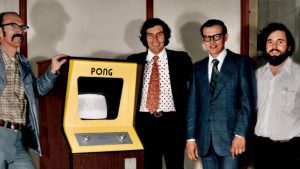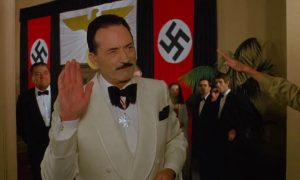
Wes Anderson films, love them or hate them, all but demand that you question why you’re watching them. Sure, spending an evening with Steve Zissou, or listening to a recounting of the glory days of a bellboy is entertaining, but what’s it all about? Why am I here? That curious nagging at the edge of your mind, forcing the audience to wonder what the point is, or if there is one, is perhaps the defining feature of Anderson’s yarns.
The French Dispatch raises the bar on this experience by telling you what it’s hoping to do, declaring that it’s impossible, then accomplishing it by way of making no attempt to do so whatsoever.
Like his other films, it isn’t absolutely necessary that viewers manage to piece together the grand, human truths of, for example, a goofy kid running away and causing a panicked search. It’s still wild, fun, filled with amazing dialog, and showcases a variety of techniques of filmcraft Anderson is enamored with, even if in previous efforts he had not perfected using them to their best effect (as he has here).
The film starts by laying out the life of Arthur Horowitz Jr. (Bill Murray) in a voice-over montage. At an early age, Arthur came to France to get his feet wet in the newspaper game, running The French Dispatch, the foreign office of the Liberty, Kansas Evening Sun. The idea is that Arthur can learn the ropes for a year or two, and then return to help run things at home. Some 50 years later, the Dispatch is revisiting a few of its more notable articles for what will be its final issue. Already, in something delivered as a humorous aside, the film offers evidence of the addictive nature of great writing, and being inside the machine producing it.
A love letter to journalists, and indeed the “writer-editor process,” the film offers up its premise, that we will simply be “reading” these articles together by visiting the events that led to their creation, then declares (sort of) its objective – to relate the need for, and utility of, editors, and perhaps the entirety of the multilayered process. This complex, if perhaps not quite lofty, goal having been established, the film then proceeds simply to read the stories at you, and the editor in question is in the film for all of ten total minutes… maybe.

The first three stories exist to lay out the world, provide some characters/relationships, manage amazing levels of entertaining interplay that is its own homage to writers who graced The New Yorker (and perhaps Whit Stilman honestly), and make one line after the fourth story become a blow so crushing it is nearly magical. They came at you sometimes like a barrage of candy floss tossed carelessly by quick-witted servers come to life from within Nighthawks, at other times like the hazy ramblings of someone who just can’t be remembering things right however adamant they are that the prison riot played out like deadly square dance.
It’s all a play with its machination laid out just, and the subtle dexterity of Owen Wilson’s effort will, unfortunately, be largely forgotten by the time one gets through the other stories, but his ability to disarm delivers the deceptive perception behind a past/present comparison of the varying neighborhoods of the newspaper’s home of Ennui-sur-Blasé.
From there the surreal nature of humanity sets in, and wonderfully by virtue not of bizarre circumstances, though they are, but in the ways these circumstances are met. A mentally disturbed murderer (Benecio Del Toro) becomes an international sensation in the art world by painting an abstract nude of one of his guards. A writer (Frances McDormand) gets too close to a story when she helps the de facto leader of the student “chess revolution” (Timothée Chalamet) write his manifesto, and has an affair with him. Finally, a writer unwittingly becomes part of the story when his meeting with the Commissaire of the Ennui police in service of a piece highlighting a police station chef, and his specialty recipes for officers, is interrupted by the kidnapping of the Commissaire’s son.
The depth of distraction inherent in the almost Wonderland-esque nature of these scenarios allows the characters to exist alone, populating the nebulous, bewitching realm of trying to describe them… write them. This effort, with Anderson’s long shots, odd angles, comic sets, and dry humor helping to drive things, ultimately leaves the writers drifting in stranger waters than they write about, unable to truly consume, or perhaps even relate at all to, their own brilliance.
There is little in the world of film that is as fascinating, or entertaining, as taking on something that is not only impossible but hardly even makes sense as a thing to try to do. The French Dispatch is such an effort and moreover realizes that the various pieces of the puzzle are nearly impossible themselves. It has to get you there and wants to change focus several times, which distracts in the wrong way, and it has to earn its end or none of it will have really meant anything. Oddly, failing in such regards would still leave an engaging, often wonderfully fun film, and one which would find itself very much at home with Anderson’s other efforts. But, The French Dispatch is a film that knows which part was the whole point of telling the story at all.
The post The French Dispatch Review – Anderson… Finally appeared first on Are You Screening?.






